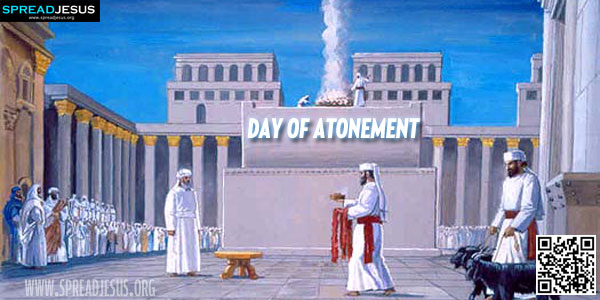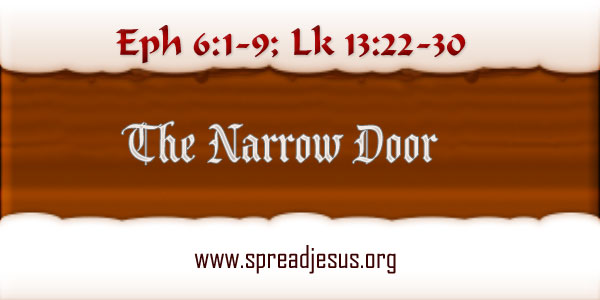Biblical Definition Of DAY OF ATONEMENT
Biblical Definitions 28-12-2023, 19:51

Biblical Definition Of
DAY OF ATONEMENT
Only one person, the Israelite high priest, could enter the Most Holy Place of the tabernacle, and he could do so only once a year, on the Day of Atonement (Lev 16:2; Heb 9:7). This was a day that the Israelites observed as a national day of cleansing from sin. It fell on the tenth day of the seventh month, a few days before the Feast of Tabernacles (Lev 16:29-34; 23:27-34).
Rituals of the day
Throughout the Israelite year, regular sacrificial rituals dealt with sin in various ways. But even the best of these did not enable the offerer, nor even the priests, to come into the sacred presence of God in the Most Holy Place. Therefore, on this one day of the year, when entrance into God’s presence was available, the high priest brought all the people’s sins to God for his forgiveness.
Before offering a sacrifice on behalf of others, the high priest had to offer a sacrifice for himself and his fellow priests. He offered the priests’ sin offering at the altar in the tabernacle courtyard, after which he took fire from the altar, along with blood from the sacrifice, into the tabernacle-tent. First he used the fire to burn incense in the Holy Place. Then, as he opened the curtain to enter the Most Holy Place, incense floated in and covered the mercy seat (lid of the ark, or covenant box), the symbolic throne of God. The high priest then sprinkled the blood of the slaughtered animal on and in front of the mercy seat (Lev 16:11-14).
On returning to the open courtyard, the high priest repeated the ritual, this time offering the people’s sin offering (Lev 16:15-19). The sprinkling of the blood on the mercy seat reminded Israelites that even at the climax of their highest religious exercise, they could still not demand forgiveness. They could only cast themselves upon the mercy of God.
A second animal was then used in the people’s cleansing ritual, but it was not killed. The high priest laid his hands on the animal’s head, confessed over it the sins of the people, and sent it far away into the wilderness so that it could never return. This was a further picture to the people that their sins had been removed, though again at the expense of an innocent victim (Lev 16:8-10,20-22).
When the sin-cleansing ritual was finished, the high priest washed himself thoroughly with water. He then offered burnt offerings of consecration, first for the priests and then for the people. At the end of the day’s activities, any others who had been in contact with the sin offering had also to wash themselves (Lev 16:23-28).
Atonement through Christ
The New Testament emphasizes that, although the Old Testament rituals were of benefit in showing people the seriousness of sin, they could not in themselves remove sin. They were only a temporary arrangement. Now that Christ has come, they are of no further use (Heb 9:6-10).
Jesus Christ, the great high priest, offered not an animal as a sacrifice; he offered himself. Through his sacrificial blood he has entered the presence of God, obtained eternal salvation, and cleansed the repentant sinner’s conscience (Heb 9:11-14). His one sacrifice has done what all the Israelite sacrifices could not do (Heb 10:11-12). Entrance into the presence of God, which was restricted under the Old Testament system, is now available to all God’s people through their high priest, Jesus Christ (Heb 10:19- 22; cf. 9:8).
When the Israelite high priest had completed the sin-cleansing rituals in the tabernacle-tent, he reappeared to the people. Likewise Jesus Christ, having dealt with sin fully and having obtained eternal forgiveness for sins, will reappear to bring his people’s salvation to its glorious climax (Heb 9:12,28).

Biblical Definition Of CHURCH After the repeated failures that characterized the early days of human...
Learn more
The Narrow Door Gentle Jesus, meek and mild, never harming, always charming! Is he so? Perhaps it is the...
Learn more
ORIYA BIBLE QUOTES LUKE 1:37 MOBILE WALLPAPER ORIYA CHRISTIAN MOBILE WALLPAPERS LUKE 1:37 For with God...
Learn more